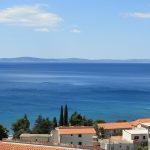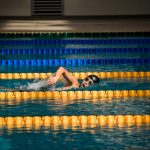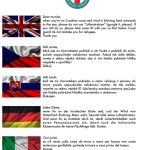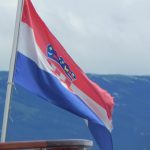ZAGREB, April 14, 2019 – The official state commemoration for the victims of the WWII Ustasha-run Jasenovac concentration camp was held at the Jasenovac Memorial Site on Sunday under the auspices of the Croatian parliament, with the families of the victims and top state officials attending.
Wreaths and flowers were laid at the Stone Flower monument by victims’ families and representatives of the state authorities, numerous embassies, counties, towns and municipalities as well as institutions and associations.
The commemoration was attended by Parliament Speaker Gordan Jandroković, Prime Minister Andrej Plenković, a number of ministers, Zagreb mayor Milan Bandić, and Roma MP Veljko Kajtazi, who also attended a commemoration on Friday, organised by associations of ethnic minorities and antifascists in memory of the breakout of Jasenovac inmates.
There were no speeches by officials and politicians at this year’s official commemoration. Instead, actors interpreted testimonies of inmates Helena Pachl Mandić and Erwin Miller.
Speaking to the press, the prime minister said, “We came to pay our respects to the victims of the Ustasha-run camp Jasenovac, to all the inmates, to those who, 74 years ago in April, broke out, when, unfortunately, many were killed.”
“We are here once again to condemn the crime and the regime under which such camps existed, and to say that today we must work on inclusion in society, on reducing divisions, on tolerance and dialogue, on nurturing the culture of remembrance and on the education of young people about important moments in Croatian history, notably from World War Two,” Plenković said.
Therefore, I’m glad that we have created a new history curriculum which has been received well by everyone, experts as well as politicians, he added.
He regretted that today’s commemoration was not a joint one and recalled that its date was set mainly by the Jasenovac Memorial Site Council, which includes members of ethnic minorities.
“I’m not glad there are two commemorations, but we are talking and I believe these talks will bear fruit next year,” Plenković said, reiterating that it would be healthy and good for society and the emancipation of these topics in present-day Croatia.
“I don’t see this as a topic with two sides,” he said when asked about the commemoration held on Friday. “I think the circumstances are markedly different since the moment representatives of Jews, Serbs, Roma and antifascist associations decided to hold a separate commemoration.”
Regarding the government’s policy, he said “our common wish is to commemorate these events appropriately, with much respect for the victims and with the wish to work, only through dialogue, talks and the culture of remembrance, on preventing something like this from happening again.”
Science and Education Minister Blaženka Divjak said in Jasenovac on Sunday it was important to have a national consensus on jointly commemorating the victims of all totalitarian regimes, and called for finding a joint platform on how to commemorate them so that “it becomes a place of unity, not a place of division.”
Speaking to the press at the official commemoration for the victims of the WWII Jasenovac concentration camp, Divjak said the focus should be “on victims, and we should realise together that this is not just part of history, we must pay special attention so that history doesn’t repeat itself.”
Divjak said she disagreed with the assessment by Ognjen Kraus, president of the Coordinating Committee of Jewish Communities in Croatia, that the government was more concerned about this year’s commemoration for the Bleiburg victims than the one in Jasenovac.
As for the small number of high school students visiting the Jasenovac Memorial Site, Divjak said education about the 20th century must be much clearer and more extensive. The new history curriculum is much more advanced concerning WWII, she added.
“Totalitarian regimes, including the totalitarian regimes on Croatian territory, are particularly highlighted. On the other hand, concentration camps and death camps are clearly put in the curriculum, and Jasenovac is something that should have its place in the regular programme,” said Divjak.
Additional funds will be set aside for eighth graders as of the next school year so that they can visit the Jasenovac Memorial Site if they wish to do so, she added.
“That doesn’t mean it’s obligatory, but it is encouraged given that funds are set aside and the ministry makes a special recommendation. Even more importantly, the history curriculum is implemented under a national standard and equally for all students in Croatia,” said the minister.
More news about Jasenovac can be found in the Politics section.







